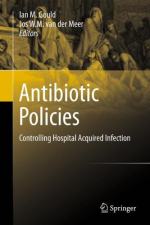|
This section contains 720 words (approx. 3 pages at 300 words per page) |

|
A nosocomial infection is an infection that is acquired in a hospital. More precisely, the Centers for Disease Control in Atlanta, Georgia, defines a nosocomial infection as a localized infection or one that is widely spread throughout the body that results from an adverse reaction to an infectious microorganism or toxin that was not present at the time of admission to the hospital.
The term nosocomial infection derives from the nosos, which is the Greek word for disease.
Nosocomial infections have been a part of hospital care as long as there have been hospitals. The connection between the high death rate of hospitalized patients and the exposure of patients to infectious microorganisms was first made in the mid-nineteenth century. Hungarian physician Ignaz Semmelweis (1818-1865) noted the high rate of death from puerperal fever in women who delivered babies at the Vienna General Hospital. Moreover, the high...
|
This section contains 720 words (approx. 3 pages at 300 words per page) |

|


